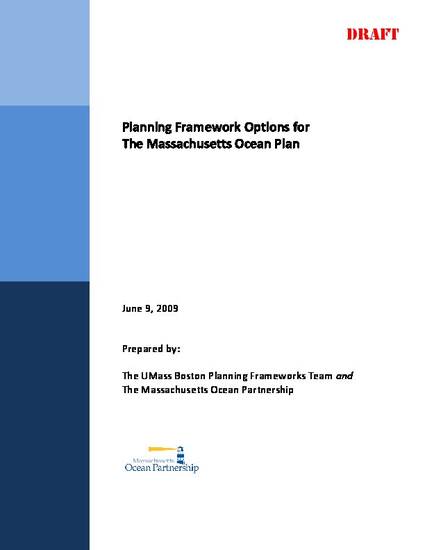
The Massachusetts Ocean Partnership (MOP) Planning Frameworks Team, in consultation with the Massachusetts Executive Office of Energy and Environmental Affairs (EEA), and based on collective experience and a review of ocean, coastal and resource management programs from the US and other countries, suggests that nine elements are essential components of the framework for the Massachusetts Ocean Plan and its implementation. While management plans and programs generally have these elements in common, there are a range of options for carrying out each program component. These options were presented to structure and inform the development of the Massachusetts Ocean Plan. For the most part, the range of options represents those that were considered to be appropriate under the Commonwealth’s existing legal and administrative structure and responsive to the requirements of the Massachusetts Ocean Act. However, the general concepts these options represent are likely to be transferable to other jurisdictions (especially in the United States) and can inform future ocean management and planning in Massachusetts. Additionally, options or their core elements can be combined to create additional alternatives within one of the nine planning components.
Available at: http://works.bepress.com/david_terkla/4/

DRAFT prepared by the UMass Boston Planning Frameworks Team and the Massachusetts Ocean Partnership.